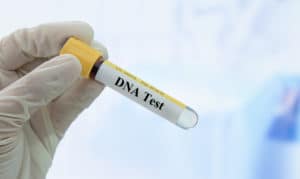The technique raises significant privacy concerns.
The Golden State Killer evaded capture for decades. Despite having DNA samples from the crime scenes, California police were unable to find the serial killer and rapist’s DNA to a suspect because they did not have anyone in the criminal justice system whose sample matched it. In 2018, the police achieved a breakthrough using a technique that raises new possibilities for law enforcement — and significant concerns for anyone who is concerned about their right to privacy.
According to a criminal attorney Los Angeles, CA, the police found the suspected Golden State Killer, Joseph DeAngelo, by checking the crime scene DNA against a free DNA database that allows people to input their genetic code in order to find their relatives and ancestors. The company, GEDmatch, confirmed that the police used it to identify DeAngelo. Although he was not in this database, a distant relative was — and that was enough to shrink the potential pool of suspects from millions of people to a single family. From there, police could use traditional investigative techniques to hone in on DeAngelo.
This case raises questions about the use of familial DNA searches, which involves finding a suspect in a DNA case by using partial matches to family members who are already in the criminal justice system. The FBI maintains a national DNA database, known as CODIS. If a suspect’s DNA is not in the database, then the police may still be able to locate a suspect through a partial match to a family member, such as a father, uncle, or brother.
While familial DNA matches have occurred in the past through the use of CODIS and other DNA databases, it has been a relatively infrequent occurrence. Now that millions of people voluntary submit DNA samples to companies that process and store their DNA to find family members, the potential for familial DNA matches has expanded considerably. As a criminal attorney Los Angeles, CA can explain, this raises significant privacy concerns.
As an initial matter, familial DNA searches have a relatively high failure rate, according to a 2014 British study. In that study, 83% of familial DNA searches failed. Beyond the potential for bad evidence — which should be a significant hurdle to its use — there is the question of how police obtain and use this private information. The use of familial DNA searches is essentially turning family members into informants on each other, often unknowingly. And in many cases, it happens because people are curious about their own history and background.
It remains to be seen if this police method will understand judicial scrutiny. California is one of several states that regulates familial DNA searches. Other states, including Maryland and the District of Colombia, have banned it entirely. As a criminal attorney Los Angeles, CA can explain, a ban on the use of familial DNA searches may make it more difficult for law enforcement to track suspects — but it will ensure that our privacy is protected.
If you have been charged with a crime, the Chambers Law Firm can help. Our aggressive team of criminal attorneys Los Angeles, CA will zealously defend you against the charges, and will fight for your rights and your freedom. Contact us today at 714-760-4088 or dchambers@clfca.com to schedule a free initial consultation.





